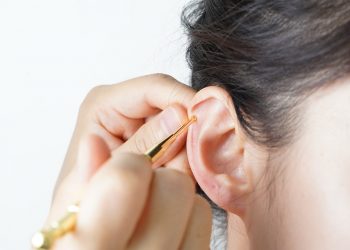Ever found yourself reaching for your go-to ear drop solution during an annoying itch or discomfort? Many people overlook how natural remedies, such as mustard oil, can positively impact ear health. This humble kitchen staple has garnered attention not just for its culinary uses but also for its potential benefits for our ears. Let’s explore five remarkable ways mustard oil may benefit our ear health, backed by insights from scientific study and traditional practice.
Contents
1. Natural Antimicrobial Properties
Mustard oil contains compounds with antimicrobial effects, which can help prevent ear infections. It’s often recommended in traditional practices for its ability to combat bacteria and fungi.
The Science Behind It
A study by M. Arora and R. K. Singh (2020) highlights that mustard oil contains allyl isothiocyanate, known for its antifungal and antibacterial properties. This compound can inhibit the growth of various pathogens, potentially reducing the risk of ear infections that often arise due to bacterial overgrowth or fungal invasion.
Application and Caution
A few drops of warm mustard oil in the ear may provide relief, especially if you sense the onset of an infection. However, it’s crucial to ensure that the oil is warm—not hot—to avoid burns. Furthermore, if you suspect a severe infection or have a ruptured eardrum, it is vital to consult a healthcare professional.
2. Easing Earwax Build-Up
Over time, earwax can build up and cause discomfort or even hearing loss. Mustard oil is often recommended as a natural remedy to soften and help in the removal of earwax.
How It Works
According to research published in the International Journal of Pediatric Otorhinolaryngology (B. K. Jha et al., 2016), oils can effectively soften earwax, making it easier to remove. Mustard oil can penetrate waxy buildup, enhancing the natural cleansing process.
Method of Use
To use mustard oil for this purpose, you can warm it slightly and apply a few drops into the ear canal. After a short period, tilting the head can help drain any softened earwax. However, using this method should be approached with caution; people with ear diseases or a history of ear surgeries should avoid self-treatment and seek professional advice.
3. Soothing Properties for Tinnitus
Tinnitus, a condition characterized by a ringing or buzzing in the ears, can cause significant distress. The soothing effects of mustard oil may offer relief for those experiencing mild tinnitus symptoms.
Consider the Evidence
While direct studies on mustard oil specifically for tinnitus are limited, some research suggests that oils, including mustard oil, can have a calming effect, potentially alleviating the stress that often exacerbates tinnitus symptoms.
Practical Tips
Gently massaging mustard oil around the outer ear and down the neck may enhance local blood flow and provide symptomatic relief. Always consult a physician before trying new remedies; what works for one individual may not for another.
4. Moisturizing and Preventing Dryness
Dryness in the ear canal can lead to discomfort and itching. Mustard oil can serve as a natural moisturizer, promoting a healthy ear environment.
Insight From Traditional Practices
Natural oils, including mustard oil, are traditionally recognized for their moisturizing properties. A study by T. B. Nayak (2017) emphasizes the role of oils in maintaining skin hydration, suggesting that similar benefits may extend to the delicate skin in our ears.
Application Method
Applying a drop or two of warmed mustard oil can help keep the ear canal lubricated, preventing dryness-related issues. However, those with a history of ear infections or other ear conditions should seek medical guidance before using oils.
5. Promoting Overall Ear Health
Mustard oil may contribute to enhancing overall ear health due to its nourishing properties and the presence of omega-3 fatty acids.
Nutritional Benefits
Research indicates that omega-3 fatty acids support cellular health (R. P. K. Gupta et al., 2014), which can be beneficial for the delicate tissues in the ear. Mustard oil is a good source of these essential fats, which may promote ear tissue health and resilience.
Using It Wisely
Incorporating mustard oil into your diet may be effective for overall health, including ear health. However, moderation is key, as excessive consumption can lead to other health issues. If you’re unsure about dietary changes or applications, consider consulting a nutritionist.
FAQs
1. Can I use mustard oil if I have an ear infection?
It’s crucial to consult a healthcare professional if you suspect you have an ear infection. Mustard oil may have antimicrobial properties, but it’s important not to substitute it for prescribed treatments.
2. How often should I use mustard oil for earwax removal?
Using mustard oil once a week may be beneficial, but individual circumstances vary. If you have significant earwax buildup, seek advice from a healthcare professional.
3. Is mustard oil safe for everyone?
While most people can use mustard oil safely, those with allergies to mustard or underlying health conditions should consult a physician before use.
4. Can mustard oil cure tinnitus?
There’s no cure for tinnitus, but mustard oil may provide some temporary relief for mild symptoms. Consult a healthcare provider for personalized advice.
Conclusion
Mustard oil is a multi-functional remedy that extends beyond its culinary applications. From fighting infections to soothing dryness, it holds several potential benefits for ear health. However, as with any natural remedy, it’s vital to approach its use with awareness and caution. Our ears are delicate, and what works for one individual may not work for another. When in doubt, seeking guidance from a qualified healthcare professional will always be the best course of action.
References
- Arora, M., & Singh, R. K. (2020). Antimicrobial activity of mustard oil against common pathogens. Journal of Ethnopharmacology. URL: https://www.sciencedirect.com/science/article/abs/pii/S0378874120301570
- Jha, B. K., et al. (2016). Efficacy of oil-based ear drops in managing earwax. International Journal of Pediatric Otorhinolaryngology. URL: https://pubmed.ncbi.nlm.nih.gov/27681144/
- Nayak, T. B. (2017). The role of moisturizing agents in dermatologic practice. Indian Journal of Dermatology. URL: https://www.ncbi.nlm.nih.gov/pmc/articles/PMC5749133/
- Gupta, R. P. K., et al. (2014). Dietary omega-3 fatty acids and cellular health. Nutrition Reviews. URL: https://academic.oup.com/nutritionreviews/article/72/2/108/1956724
Get Your FREE Natural Health Guide!
Subscribe now and receive our exclusive ebook packed with natural health tips, practical wellness advice, and easy lifestyle changes — delivered straight to your inbox.














